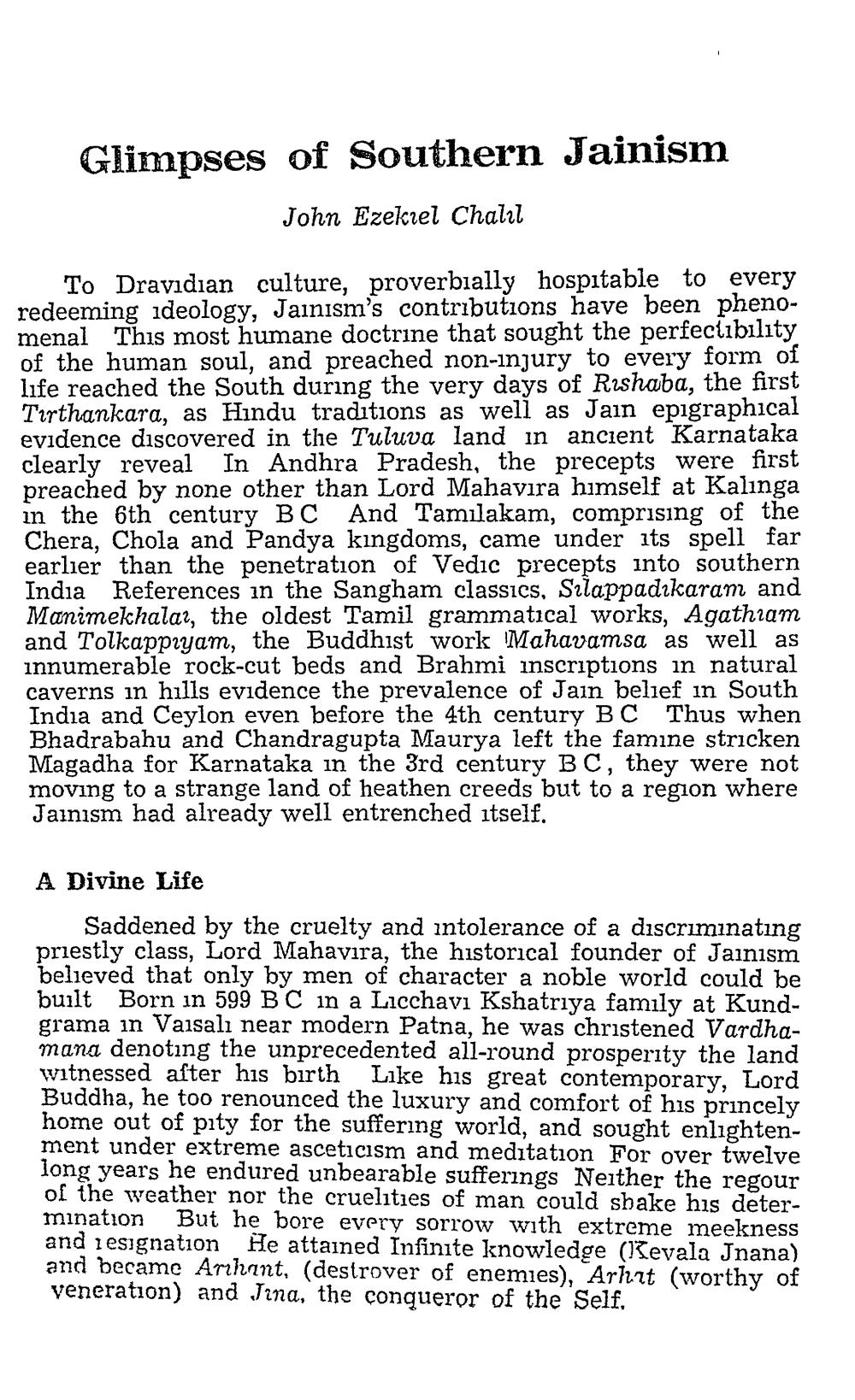________________
Glimpses of Southern Jainism
John Ezekiel Chalıl
To Dravidian culture, proverbially hospitable to every redeeming ideology, Jainism's contributions have been phenomenal This most humane doctrine that sought the perfectibility of the human soul, and preached non-injury to every form of life reached the South during the very days of Rishaba, the first Tirthankara, as Hindu traditions as well as Jain epigraphical evidence discovered in the Tuluva land in ancient Karnataka clearly reveal In Andhra Pradesh, the precepts were first preached by none other than Lord Mahavira himself at Kalinga in the 6th century BC And Tamilakam, comprising of the Chera, Chola and Pandya kingdoms, came under its spell far earlier than the penetration of Vedic precepts into southern India References in the Sangham classics, Szlappadıkaram and Manimekhalar, the oldest Tamil grammatical works, Agathram and Tolkappiyam, the Buddhist work Mahavamsa as well as innumerable rock-cut beds and Brahmi inscriptions in natural caverns in hılls evidence the prevalence of Jain belief in South India and Ceylon even before the 4th century BC Thus when Bhadrabahu and Chandragupta Maurya left the famine stricken Magadha for Karnataka in the 3rd century BC, they were not moving to a strange land of heathen creeds but to a region where Jainism had already well entrenched itself.
A Divine Life
Saddened by the cruelty and intolerance of a discriminating priestly class, Lord Mahavira, the historical founder of Jainism believed that only by men of character a noble world could be built Born in 599 B C in a Licchavı Kshatriya family at Kundgrama in Vaisalı near modern Patna, he was christened Vardhamana denoting the unprecedented all-round prosperity the land witnessed after his birth Like his great contemporary, Lord Buddha, he too renounced the luxury and comfort of his princely home out of pity for the suffering world, and sought enlightenment under extreme asceticism and meditation For over twelve long years he endured unbearable sufferings Neither the regour of the weather nor the cruelities of man could shake his determination But he bore every sorrow with extreme meekness and resignation He attained Infinite knowledge (evala Jnana) and became Arihant, (destrover of enemies), Arhat (worthy of veneration) and Jina, the conqueror of the Self,




